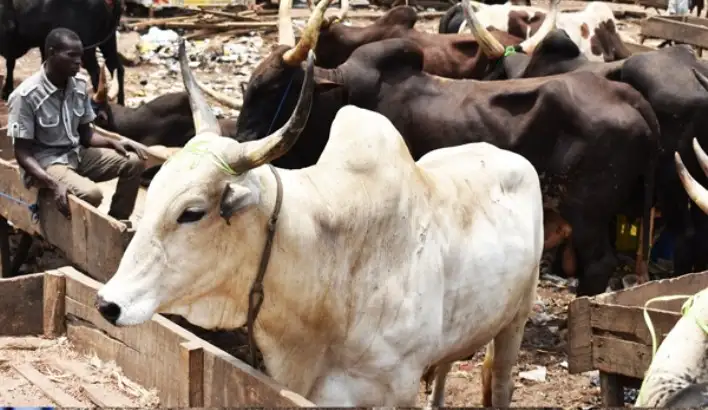 Aji Africa
Aji Africa
15 Oct 2025



15 Oct 2025
Beef — derived from cattle — is one of Nigeria’s most consumed and culturally valued sources of animal protein. From everyday meals to festive occasions, cow meat forms a staple in Nigerian diets. However, the traditional methods of cattle rearing, mainly through open grazing and nomadic herding, are increasingly unsustainable in modern times.
To meet the country’s rising demand for beef, ranching has emerged as the most efficient, secure, and sustainable alternative for cattle production in Nigeria.
Nigeria is home to an estimated 20–25 million heads of cattle, mostly owned by smallholder pastoralists. The majority are raised under extensive grazing systems, where herders move from one region to another in search of pasture and water.
This system has several limitations:
Low productivity: Traditional breeds yield little meat per animal compared to modern beef breeds.
High losses: Diseases, heat stress, and lack of veterinary care reduce herd performance.
Conflicts: Open grazing often leads to clashes between farmers and herders.
Environmental degradation: Overgrazing contributes to soil erosion and desertification.
As a result, despite Nigeria’s large cattle population, the country still imports processed beef and dairy products to meet demand.
Ranching involves keeping and managing cattle in a fenced, controlled environment with adequate feed, water, and veterinary care. It promotes efficiency, traceability, and environmental sustainability.
Increased Meat Yield
Controlled feeding and selective breeding in ranches can double or triple beef production compared to free grazing systems.
Improved Animal Health
Ranching allows for disease control, vaccination, and proper record-keeping. Healthy animals mean higher-quality meat.
Conflict Reduction
By reducing cattle migration, ranching helps minimize farmer-herder conflicts that have plagued many states.
Environmental Protection
Proper land management prevents overgrazing and promotes soil conservation and reforestation.
Job Creation and Value Addition
Ranching supports local economies through meat processing, feed production, veterinary services, and logistics.
Nigeria’s population, estimated at over 220 million, consumes millions of tons of beef annually. Urbanization, rising incomes, and changing diets have pushed demand for beef far beyond the capacity of the current production system.
The meat industry—especially beef—is projected to grow at over 5% annually as consumer habits evolve.
This creates an urgent need for modern ranching systems capable of supplying safe, hygienic, and affordable meat.
To address the challenges of open grazing and boost domestic beef production, several initiatives have been introduced:
National Livestock Transformation Plan (NLTP): A federal program encouraging states to adopt ranching as a sustainable livestock management system.
World Bank–supported L-PRES Project: Focused on improving productivity, animal health, and infrastructure in livestock value chains.
Private Ranching Investments: Companies such as JBS (Brazil) have announced multi-billion-dollar investments to establish modern meat processing plants in Nigeria.
State-Level Ranch Projects: States like Nasarawa, Kaduna, and Oyo have begun developing ranching clusters with improved breeds and feedlots.
While the potential is vast, the ranching industry faces significant barriers:
High Cost of Establishment: Setting up a ranch requires fencing, boreholes, feed, veterinary care, and land — often beyond the reach of smallholders.
Land Tenure Issues: Access to land remains a major obstacle due to ownership disputes and unclear policies.
Feed and Water Scarcity: During dry seasons, feed and water shortages increase production costs.
Limited Technical Knowledge: Many herders and local farmers lack training in modern ranch management and breeding practices.
Weak Infrastructure: Poor roads, electricity, and cold storage systems hinder efficient meat processing and distribution.
Inconsistent Policies: Policy discontinuity at both federal and state levels discourages long-term investment.
If Nigeria successfully transitions from open grazing to ranching, the economic gains could be transformative:
Boost to GDP: The livestock sector could contribute significantly more to the agricultural GDP, currently less than 10%.
Export Opportunities: With improved standards, Nigeria could export processed beef and leather products to neighboring countries.
Food Security: Stable beef supply would reduce import dependence and stabilize market prices.
Youth Employment: Ranching, feed production, and meat processing can absorb thousands of unemployed youth.
The way forward for Nigeria’s beef industry lies in modernizing its livestock management systems. Key steps include:
Promoting ranch development through incentives, credit, and training.
Encouraging private-public partnerships for feed mills, abattoirs, and meat processing facilities.
Enhancing veterinary services and disease surveillance.
Strengthening cold chain infrastructure to reduce post-slaughter losses.
Implementing clear land use and ranching policies to ensure security and investment confidence.
Ranching represents the future of sustainable cow meat production in Nigeria. Transitioning from open grazing to organized ranch systems can improve productivity, prevent conflicts, and boost the economy.
However, this transformation requires strong government support, private sector participation, and capacity building for local farmers.
With the right investments and policies, Nigeria has the potential to become West Africa’s leading hub for quality beef production and export, ensuring food security, employment, and peace across communities.
 your Money
your Money